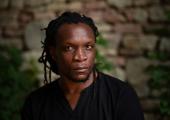Best of 2023: Books

As the year draws to a close, we look back at the best books we opened
From wandering Rachmaninoff to Ulysses tribute, or a poet’s boyhood in Dundee to sleeplessness and arboreal inner lives, our reviewers share their literary picks from 2023.





![“in the case of John le Carré […] his pursuit of women was a key to unlocking his fiction”](/sites/default/files/styles/medium_220x220/public/mastimages/Adam%20Sisman.jpg?itok=1Tln5SQD)


